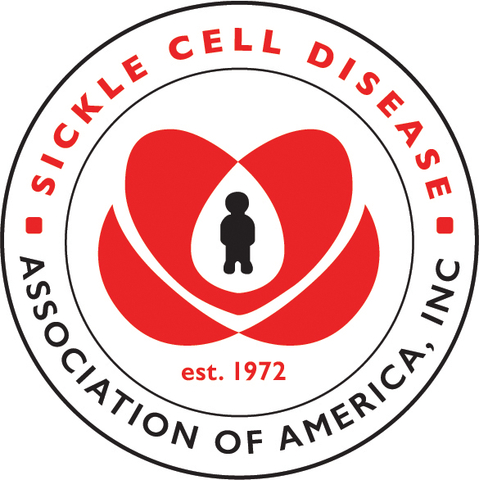HANOVER, MD and WATERTOWN, Mass.--(BUSINESS WIRE)--The Sickle Cell Disease Association of America, Inc. (SCDAA), in partnership with Forma Therapeutics, Inc. (Nasdaq: FMTX) today announced that they have joined forces to create a public service announcement (PSA) to drive awareness and advance meaningful understanding of sickle cell disease (SCD).
SCD occurs in one in every 365 Black Americans and affects an estimated 100,000 individuals in the U.S. 1 alone, according to the Centers for Disease Control and Prevention. An inherited blood disorder, SCD causes red blood cells to become sickle-shaped and have difficulty passing through small blood vessels. This can cause severe pain episodes called vaso-occlusive crises, which can potentially lead to end organ damage and to a life expectancy that is reduced by as much as 20 years in the U.S. 5,9 Since SCD is considered an invisible disease, the “Believe it!” campaign urges viewers to imagine they are experiencing the agonizing but unseen pain that is faced by people who live with SCD.
“This incredibly powerful PSA brings the experience of living with SCD to life and makes it extraordinarily real for the viewers. As I watched it, I felt that pain – both the excruciating physical pain, as well as the pain of living with a disease that others cannot see and often do not understand,” said Regina Hartfield, President and CEO of the SCDAA. “The SCDAA and I are extremely grateful for the expert creative direction that LeSean Harris and his colleagues at Fela brought to this critically important project. His vision has created an eye-opening experience that will challenge what people know about SCD and inform them in a profound way, which they wouldn’t experience unless they are an SCD caregiver or a warrior themselves.”
“As soon as I learned about this PSA, I felt compelled to be a part of a project that would shine a light on SCD and be a voice for the people who are impacted by this devastating diagnosis,” said LeSean Harris, Director at Fela. Harris, along with others at Fela, Forma Therapeutics and Anderson DDB Health & Lifestyle, donated time and resources to this project to help bring this disease to the forefront, with Forma Therapeutics also contributing funding towards some aspects of the project.
The “Believe it!” campaign consists of TV commercials and a radio PSA, with a call-to-action to visit SCDBelieveIT.org where additional information on sickle cell disease and SCDAA is available, and where the PSA can also be viewed.
“Our goal in championing this project is to educate the general public on the experience of this disease by putting the patient perspective front and center, and by doing so, build support for those who live with SCD every day,” said Dr. Ifeyinwa (Ify) Osunkwo, Senior Vice President and Chief Patient Officer at Forma Therapeutics. “After people watch this PSA, we hope that they will better understand and empathize when someone with sickle cell shares about their pain – that they will believe it!”
About Sickle Cell Disease
Sickle cell disease (SCD) affects an estimated 100,000 people in the United States,1 an estimated 52,000 people in Europe,2 and 17 million people worldwide, particularly among those whose ancestors are from sub-Saharan Africa.1 Worldwide ~300,000 infants are born each year with SCD⁸ with ~75% of them born in the Sub-Saharan Africa.5 It also affects people of Hispanic, South Asian, Southern European and Middle Eastern ancestry.1 SCD is a lifelong inherited rare blood disorder that impacts hemoglobin, a protein carried by red blood cells that delivers oxygen to tissues and organs throughout the body.3 Due to a genetic mutation, individuals with SCD form abnormal hemoglobin known as sickle hemoglobin. Through a process called hemoglobin polymerization, red blood cells become sickled – deoxygenated, crescent-shaped and rigid.3-5 The sickling process causes hemolytic anemia (low hemoglobin due to red blood cell destruction) and blockages in capillaries and small blood vessels, which impede the flow of blood and oxygen throughout the body. The diminished oxygen delivery to tissues and organs can lead to life-threatening complications, including stroke and irreversible organ damage.4-7
About SCDAA
Sickle Cell Disease Association of America advocates for people affected by sickle cell conditions and empowers community-based organizations to maximize quality of life and raise public consciousness while advancing the search for a universal cure. The association and more than 50 member organizations support sickle cell research, public and professional health education and patient and community services. (www.sicklecelldisease.org)
About Forma Therapeutics
Forma Therapeutics is a clinical-stage biopharmaceutical company focused on the research, development and commercialization of novel therapeutics to transform the lives of patients with rare hematologic diseases and cancers. Our pipeline is led by etavopivat, an investigational, once-daily, selective pyruvate kinase-R (PKR) activator designed to be a disease-modifying therapy with the potential to improve red blood cell (RBC) health and transform the lives of people living with sickle cell disease, thalassemia, and lower risk MDS. Our R&D engine combines deep biology insight, chemistry expertise and clinical development capabilities to create drug candidates with differentiated mechanisms of action focused on indications with high unmet need. Our work has generated a broad proprietary portfolio of programs with the potential to provide profound patient benefit. For more information, please visit www.FormaTherapeutics.com or follow us on Twitter @FORMAInc and on LinkedIn.
References
- Centers for Disease Control and Prevention website. Sickle Cell Disease (SCD). https://www.cdc.gov/ncbddd/sicklecell/data.html. Accessed June 3, 2019.
- European Medicines Agency. https://www.ema.europa.eu/en/medicines/human/orphan-designations/eu3182125. Accessed June 12, 2020.
- National Heart, Lung, and Blood Institute website. Sickle Cell Disease. https://www.nhlbi.nih.gov/health-topics/sickle-cell-disease. Accessed August 5, 2019.
- Rees DC, et al. Lancet. 2010;376(9757):2018-2031.
- Kato GJ, et al. Nat Rev Dis Primers. 2018;4:18010.
- Kato GJ, et al. J Clin Invest. 2017;127(3):750-760.
- Caboot JB, et al. Paediatr Respir Rev. 2014;15(1):17-23.
- Piel FB, et al. N Engl J Med. 2017;376:1561-1573.
- DeBaun MR, et al. Blood. 2019 Feb 7;133(6):615-617.





